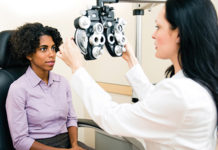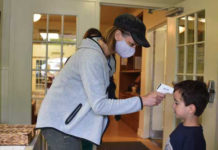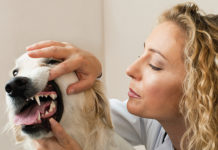
Antibiotics don\’t have to be the first line of defence for ear infections in children. Learn how to treat ear infections naturally, and when it\’s appropriate to turn to antibiotics.
Middle ear infection, or otitis media, is the most common reason children are seen by doctors. Antibiotics are usually the first line of treatment recommended. Antibiotics, however, often lead to recurrent infections and do not address the root cause. Consequently, more parents are seeking alternative natural treatments.
Causes of ear infections in children
Eustachian tube structure
Structurally, children are more susceptible to mucus and fluid buildup in the ears because their Eustachian tube—a canal between the middle ear and the back of the throat—is shorter and more horizontal than in adults.
This may prevent proper drainage of fluid, especially if there is any mucus present in the tube. Mucus provides a good environment for bacterial or viral growth, which leads to inflammation of the middle ear and canal, causing pain.
Allergies
Chronic ear infections can also be due to food or airborne allergies. Allergy creates inflammation and pressure changes in the ear, which can then lead to mucus buildup and infection.
Suppressed immune system
If immune function is lowered for any reason, bacteria or viruses from the nose or throat can find their way into the middle ear and contribute to an ear infection.
Signs and symptoms of an ear infection
Young children with an ear infection may show the following signs:
- irritability
- problems feeding or sleeping
- pulling on the ear
- complaints of ear pain
These symptoms are also often associated with signs of upper respiratory tract infection such as runny or stuffy nose, sore throat, cough, and fever. It’s always a good idea to consult a health care practitioner to get symptoms checked and to determine the best course of treatment.
How to prevent ear infections
There are several things parents can do to help prevent ear infections in their children before they become a problem.
Strengthen the immune system
Breastfeeding
Breastfeeding is recommended exclusively for the first six months and then until the child is at least a year old. Human milk, unlike infant formula, contains anti-inflammatory and antimicrobial agents as well as antibodies that are needed to compensate for the immaturity of the infant immune system.
Studies show that introduction of infant formula in the first six months of life is associated with increased incidence of acute otitis media in early childhood when compared with exclusively breastfed infants.
Vitamin D
Studies have found that adequate vitamin D levels are needed to activate the killer T-cells of the immune system so they can detect and kill foreign micro-organisms, potentially preventing serious infection. Vitamin D deficiency can also increase the risk of respiratory infections in children.
Although there is little research on vitamin D and ear infections, most ear infections occur alongside a respiratory infection, meaning that ensuring your children maintain adequate levels of vitamin D may help in reducing the rate of ear infections.
Probiotics
Supplementation of the diet with intestinal bacteria is important to healthy immunity, especially if a child has been on antibiotics. Because antibiotics kill off all bacteria, even healthy micro-organisms, they allow for overgrowth of more harmful bacteria as well as yeast, which can lead to digestive issues and further infections.
Probiotics help to replenish healthy bacteria in the gastrointestinal tract, where a large component of our immune system exists. A recent study showed that supplementing infants with probiotics decreased the occurrence of early acute otitis media as well as antibiotic use during the first year of life.
Decrease inflammation in the middle ear and canal
Allergies
One main cause of inflammation and mucus buildup in the ear is food allergies. The common food allergies include dairy, wheat products containing gluten, soy, eggs, and some nuts. Blood tests can identify specific food allergens, but often eliminating the general offending food groups for a period of time, especially dairy products, can help resolve reoccurrence of ear infections.
Omega-3s
Omega-3 fatty acids can also help reduce inflammation in the ear canal. Studies show that omega-3s, especially eicosapentaenoic acid (EPA) and docosahexaenoic acid (DHA), target anti-inflammatory pathways that decrease inflammation in the body. Adding fish to your child’s diet or a good fish oil supplement containing omega-3s will help ensure adequate levels.
Natural treatments for ear infections
An ear infection is rarely a medical emergency and will usually show improvement within a few days. A reasonable approach in treating a child older than six months, who is otherwise healthy and whose other symptoms are mild, is to wait two to three days to see if the body will recover without antibiotics.
If after three days the infection has not gone away, antibiotics may be necessary. However, during the period of “waiting and watching,” there are things that can be done naturally to help the body clear the infection.
Homeopathy
Studies have shown that homeopathy is an effective treatment for acute otitis media, with quicker symptomatic improvement as well as decreased antibiotic use compared to children given other conventional treatments such as anti-inflammatory and pain-relieving medications.
It is important to consult with a natural health care practitioner to find the homeopathic remedy whose description most closely matches your child’s overall symptom picture.
Herbals
Botanical medicine involves using extracts of plants to treat or prevent illness. Various herbal blends have been studied in the treatment of otitis media, specifically Allium sativum, Verbascum thapsus, Valendula flores, Hypericum perforatum, and lavender. When mixed with vitamin E and olive oil and used as ear drops, these plants help to relieve ear pain, which is one of the main symptoms of otitis media. a
Tip: when antibiotics are necessary
The use of numerous rounds of antibiotics can leave a child more susceptible to other types of infections, as bacteria evolve to become drug resistant. This is why it is essential to complete the entire round of antibiotics and not just stop when there is an improvement in symptoms.
Antibiotics also wipe out beneficial bacterial flora, which weakens the overall immune system. It is important, therefore, to replenish the healthy bacteria by taking a probiotic supplement.
Stagger the administration of the antibiotic and probiotic so that the probiotic is administered at least three hours after the antibiotic dose; otherwise the antibiotic may reduce the effectiveness of the probiotic micro-organisms.





























